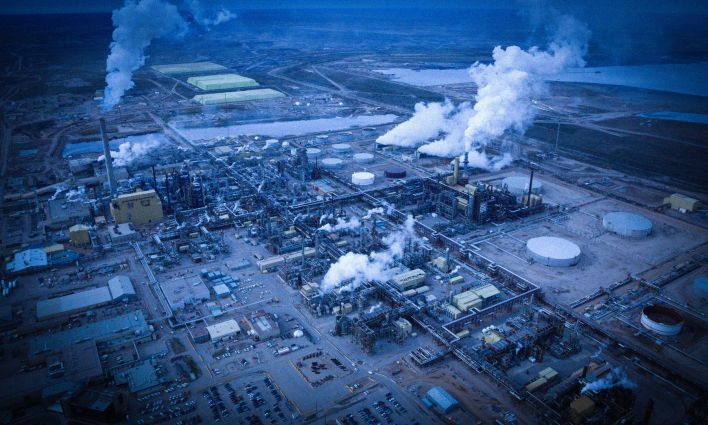You’ve heard it all before: climate change poses an existential threat to humanity, we need to aggressively cut our dependence on fossil fuels to reduce greenhouse gas emissions, and governments need to lead in the face of a private sector that is obstructing serious climate action.
And, every year, it almost seems like Canada’s federal government gets it. It acknowledges the gravity of the climate crisis, proposes plans and strategies… and then comes up short at budget time.
For understandable reasons, the COVID-19 pandemic took policy priority in the past year. Unfortunately, climate change didn’t take a break. The 2021 budget is more important than ever: it needs to put Canada on a path to a lower-carbon economy, especially in light of the government’s new legislated commitment to achieve net-zero emissions by 2050.
It’s time the federal government matched its words with its wallet. Here’s what we’re looking for from Monday’s budget.
For understandable reasons, the COVID-19 pandemic took policy priority in the past year. Unfortunately, climate change didn’t take a break.
A focus on direct public investment
Call it what you want: a Green New Deal, a proactive just transition or a government-led clean industrial policy. Whatever the label, we need massive, direct public investment in emissions-reducing, job-creating infrastructure projects across the country.
It is increasingly clear that public-private partnerships and other incentives for the corporate sector to invest in climate-friendly infrastructure are not working—or, at least, they are not working fast enough, given the scale of the crisis.
The federal government must take the lead, especially in important industries that are not immediately profitable, like the environmental reclamation of abandoned oil and gas wells.
Need an example of how this can be done quickly and at scale? In 2018, the federal government dropped $4.5 billion to buy the Trans Mountain Expansion pipeline project and committed another $12.6 billion for construction costs. Imagine that fiscal enthusiasm directed toward projects that would reduce—rather than increase—Canada’s emissions.
Chump change won’t cut it here. The federal government should be spending upwards of $40 billion per year to accelerate our transition to a net zero carbon economy.
In 2018, the federal government dropped $4.5 billion to buy the Trans Mountain Expansion pipeline project and committed another $12.6 billion for construction costs. Imagine that fiscal enthusiasm directed toward projects that would reduce—rather than increase—Canada’s emissions.
Tangible steps toward a just transition
Workers and their communities must be supported as Canada transitions away from coal, oil and gas production toward greener alternatives. Without adequate support, the livelihoods of thousands of workers and dozens of resource communities are on the line.
A just transition that leaves no one behind is both possible and desirable, but it requires coordination and adequate funding. New CCPA research recommends the creation of a permanent Just Transition Commission to work with communities and governments to develop transition plans. It also proposes new social programs to provide income support to displaced workers as well as expand training capacity for marginalized groups in growth occupations, like the skilled trades.
A just transition program that provides generous support to those in need, while aggressively training new workers for a cleaner, more inclusive economy, will take serious funding—as much as $1.5 billion per year.
The end of fossil fuel subsidies
It’s so obvious it’s painful: if we’re trying to reduce emissions from fossil fuels, we shouldn’t be financially supporting the companies that are looking for, extracting, processing and exporting coal, oil and natural gas.
Ending subsidies to the fossil fuel industry can save us $2 billion per year.
Closure of carbon pricing loopholes
The government’s latest climate plan commits to raising the carbon price to $170 per tonne by 2030. That’s good news and it should be implemented in the budget, but the details matter.
Many major industrial emitters are currently exempt from the carbon price, in whole or in part, including many fossil fuel producers and exporters. We need a timeline for winding down the output-based pricing system, which effectively subsidizes fossil fuel production and undermines our broader climate goals.
The federal government should also shore up loopholes in the backstop policy that currently allows provinces like New Brunswick to avoid charging the full carbon price.
If we’re trying to reduce emissions from fossil fuels, we shouldn’t be financially supporting the companies that are looking for, extracting, processing and exporting coal, oil and natural gas.
Less incrementalism, more transformation
Ultimately, the federal government needs to come to grips with the crisis we are facing. There is simply no future in which Canada is producing coal, oil and natural gas at any significant scale.
Rather than cling to an outdated and dying vision of the Canadian economy, we need a transformative vision for a net zero future. Budget 2021 is a big opportunity to get us there.








